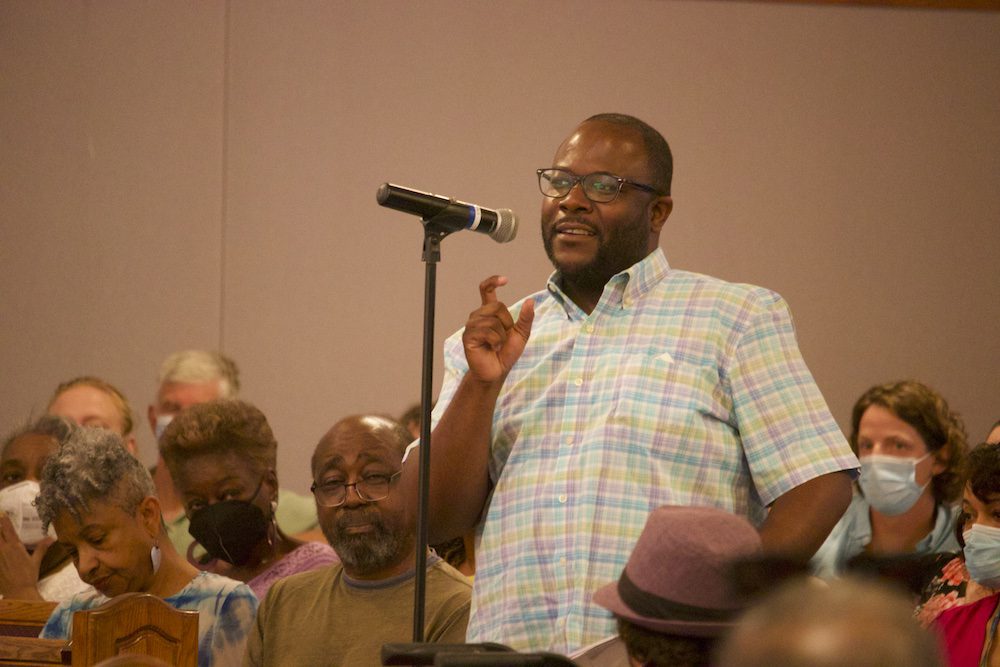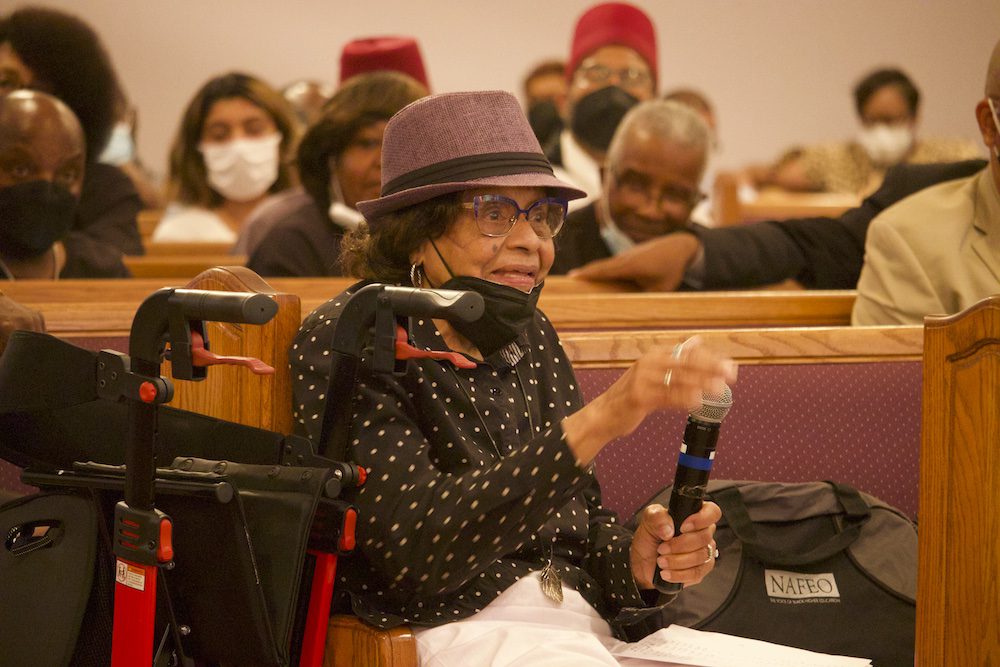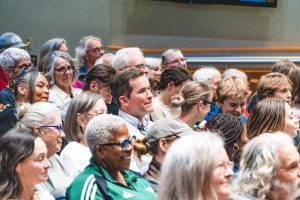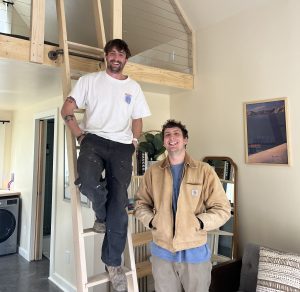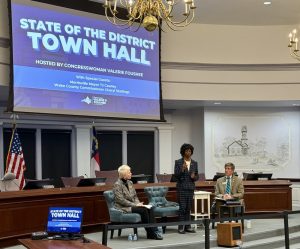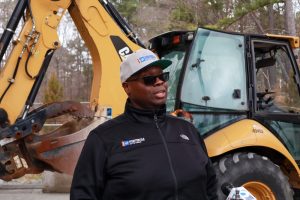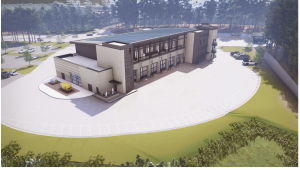On a Monday evening, Hayti residents, community leaders and city representatives file into the Monument of Faith Church sanctuary. The room bustles with anticipation as attendees exchange greetings and scribble their names and addresses on public comment cards. The subject of the meeting is the Durham Housing Authority’s proposed Fayette Place project in Hayti; the goal, community reconciliation.
Earlier this year, the housing authority stirred controversy after tapping Durham Community Partners to redevelop the Fayette Place site. The proposal calls for the construction of 774 affordable housing units on Fayette Place, a parcel of vacant land within the historically Black Hayti neighborhood. In 2017, the City of Durham awarded the housing authority a $4.2 million grant to purchase the plot, stipulating that the agency create a community engagement program for the project. However, Hayti residents argue that little has been done to include them.
Mayor Elaine O’Neal opens the meeting and introduces City Attorney Kimberly Rehberg and Durham Housing Authority CEO Anthony Scott, who outline the details of the Fayette Place development. Using PowerPoint slides that feature tiny, indiscernible words, Scott explains the project’s timeline, the selection criteria used in scoring proposals, and the RFP (“Request for Proposal”) process that resulted in the selection of Durham Community Partners. Audience members interrupt Scott often, criticizing his presentation as inaccessible to the visually impaired.
“We can’t even see the slides! You’re talking, and we’re losing it,” says Lavonia Allison, a longtime Durham activist and former chair of the Durham Committee on the Affairs of Black People. Anthony Scott closes shortly after, and the public comment period opens.
Some speakers have come to criticize the housing authority’s rejection of Hayti Reborn, a community revitalization project that was one of five proposals submitted to the housing authority for Fayette Place.
Hayti Reborn proposed a 2000-acre mixed-use commercial, retail, and residential space on Fayette Place, along with the establishment of an R&D fund to reinvest wealth into the community.
Anica Green wears a black T-shirt emblazoned with the Hayti Reborn logo. On the back, white lettering reads, “The more things change… The more they stay the same!”
“The reason for inequality in this country is because we use white supremacist standards and processes to make people compete when there are inadequate equal resources,” Green says. “You are making multi-national, national, and international organizations compete with local, homegrown organizations.”
Henry McKoy, project director for Hayti Reborn, says the process for choosing the Fayette Place developers was not transparent.
“Hopefully some folks don’t think it’s just a kind of a sore loser syndrome here, right?” McKoy says. “We entered into this RFP. We weren’t accepted—so now we’re sore losers. But, the work that happened on this goes long before this RFP ever came along,”
Allison is among the final speakers. While other speakers are asked to migrate to one of two mics strategically placed between the sections of pews, “Mama E” orates from her seat—per the Mayor’s request. Her walker sits untouched in the aisle.
“Those 20 acres have got to be used for the benefit of Black folk who have lost everything!” Allison says. “We can not turn it over to the housing authority. They have not been successful.”
The mayor and fellow city council members close the meeting by expressing sympathy for the Hayti community. Still, Mark-Anthony Middleton, the Mayor Pro Tempore, explains that the housing authority’s RFP process has strict legal guidelines to prevent misconduct and favoritism. The city does not have jurisdiction over Durham Housing Authority contracts, he says, echoing earlier comments by the city attorney.
“We don’t have the authority to cherry-pick an RFP,” Middleton says.“If I could do it for you, I could do it for a friend—or family member. You don’t want that.”
City council members, including DeDreana Freeman and Monique Holsey-Hyman, advocate for continued conversation. So does O’Neal, who grew up in Durham. “I’ve spent years walking down Fayetteville Street… We got to get to a yes,” the mayor says.
The Durham Housing Authority will hold additional community meetings about the development this month and next. The first is scheduled for this evening at 6 p.m. at the W.G. Pearson Center, 600 E. Umstead St. The remaining meetings will be held on July 14 and 28.
Above (from top): Durham Housing Authority CEO Anthony Scott; speaker Antonio Jones; one of several speakers wearing Hayti Reborn T-shirts; longtime Durham activist Lavonia Allison. Photos by Maddie Wray — The 9th Street Journal
Akiya Dillon


